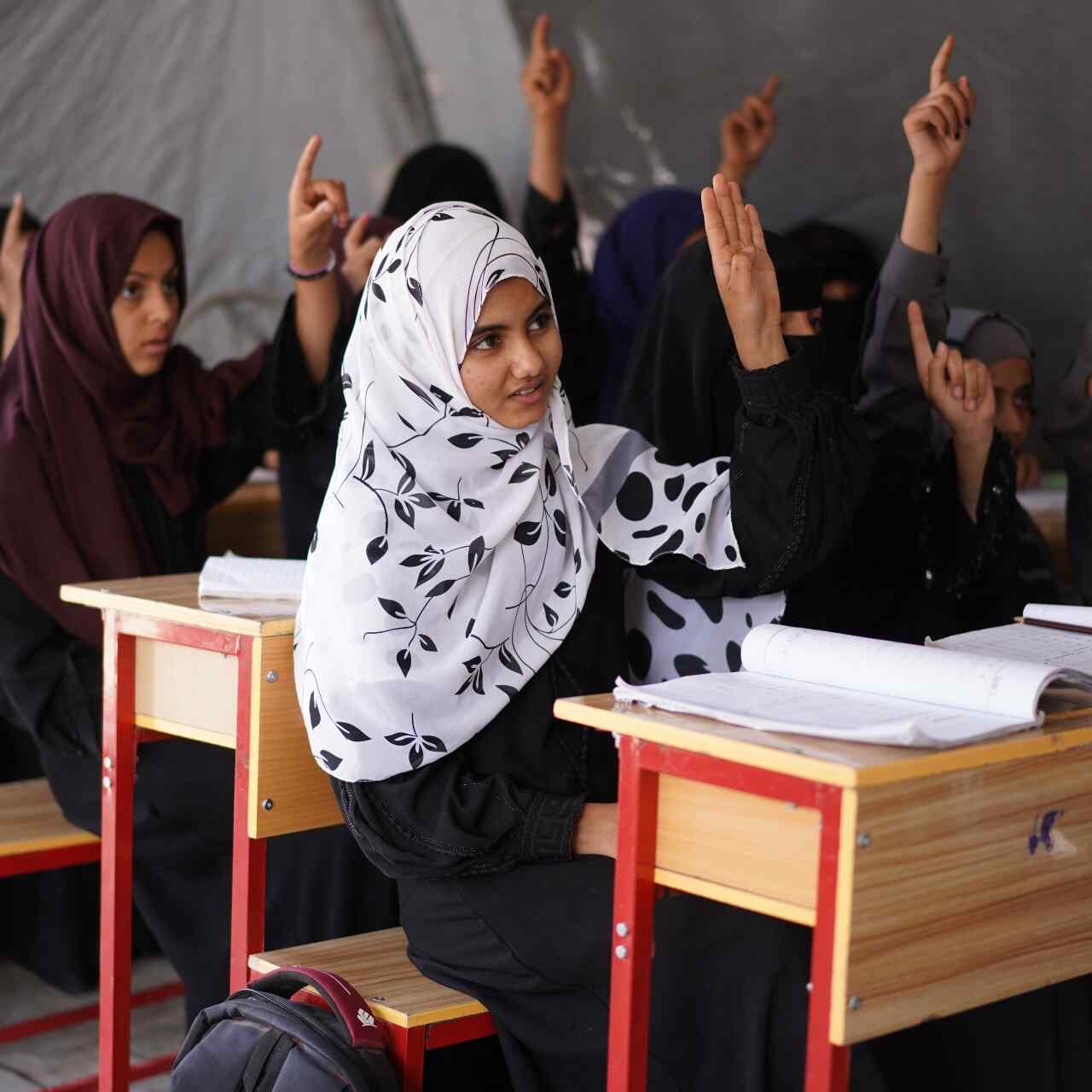
How are children and their education affected by crisis?
Almost a third of all crisis-affected children lose access to education. Here’s what the IRC is doing to help.

Almost a third of all crisis-affected children lose access to education. Here’s what the IRC is doing to help.
Everyone has the right to education. However, 224 million children affected by crises need educational support, including more than 72 million who cannot attend school. Those who can continue learning face numerous barriers to accessing a quality education.
Education is a critical foundation in promoting livelihoods, safety and human rights. The IRC is implementing innovative solutions to provide crisis-affected children with education opportunities on a global scale.
Below, we explore the importance of education in crisis-affected regions and identify ways to support education for all
Education is a fundamental right under the Universal Declaration of Human Rights and it extends to all children, including those experiencing crisis.
According to IRC education and early childhood development policy advisor, Elana Banin, “Education is lifesaving. It’s a dual-purpose solution that protects vulnerable children in the short term and ignites their long-term capacity to contribute meaningfully to their communities and families.”
In regions prone to crises, education prepares communities to adapt. Schools and teachers impart life-saving lessons, complement health care services and help distribute aid in the form of in-kind humanitarian aid or cash assistance. The power of education is simply undeniable.
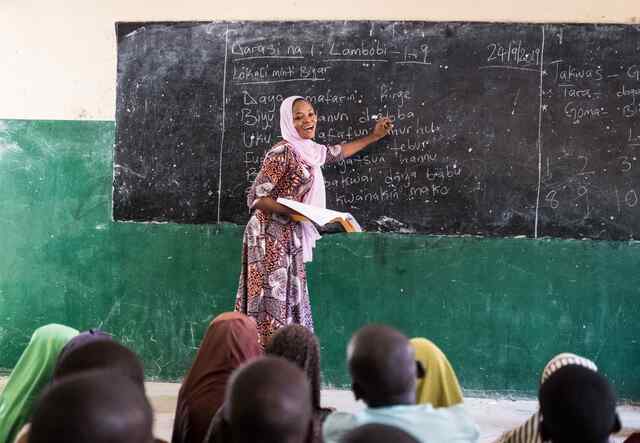
Crises, such as conflict and climate shocks, disrupt education causing children to leave schools. However, over two-thirds of those who continue their education do not achieve proficiency in reading or math.
Families affected by crises are often displaced for long periods of time, with refugees experiencing an average displacement of 20 years and internally displaced people an average of 10 years. If world leaders do not address the educational barriers that arise during crises, it is estimated that 825 million youth will lack the necessary skills to contribute to the workforce by 2030.
“Despite the vast and growing education needs of children and youth in crisis contexts, education remains a severely underfunded aspect of humanitarian responses globally, receiving less than three percent of humanitarian aid annually,” explains IRC senior director of education, Emma Gremley. “The international community must honor the right of every child to a quality education through sustained funding and a commitment to delivering impactful, innovative and contextualized support for programming.”
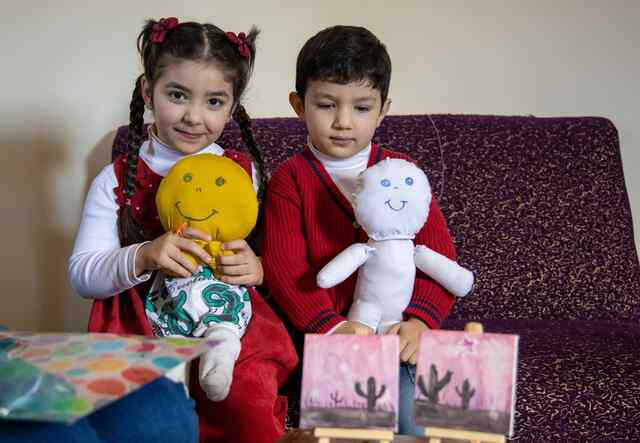
“My hopes for my children are that they get a proper education,” says Sulaima. “I believe in education. I was in an engineering college after one year because of the war. I’m still thinking of ways to complete my studies.”
During a crisis, vulnerable groups – particularly women and girls – are often excluded from education due to discrimination, violence and harmful practices like child marriage. This leads to young girls dropping out of school to take on domestic tasks or generate income.
Displaced children face challenges accessing quality education including adapting to new schools and cultures that impact their learning ability.
“Adversity has physical impacts on the brain and can impede a child’s ability to grow both physically and mentally,” explains Banin. “One of the first priorities in a crisis is to help children heal from traumatic experiences. Then, we can work to empower children through the tools of education to rise above it.”
During times of crisis, young children are especially vulnerable and disadvantaged. The first five years of a child’s life are considered the most critical stage of development, but crises disrupt the nurturing environments that are essential for their growth. Despite the significant impact of humanitarian crises on young children, only 1.2% of education aid from donors is allocated to early childhood education.
“By investing in these early years, we can catalyze progress and facilitate long term development and learning,” says Banin.
For students like sixteen-year-old Asamench Asmisalu, education is a critical part of her recovery from crisis. Asamench’s family, like many others in Ethiopia, were displaced from their homes by severe drought and conflict.
“We used to have mango trees which were a source of income but they were destroyed during the conflict,” says Asamench. “Our belongings were looted. I stopped my education for a while because the school’s closed due to the conflict.”
Asamench and her family relocated to Konso, Ethiopia. She now attends a temporary learning center constructed by the IRC to support drought and conflict-affected communities in the region.
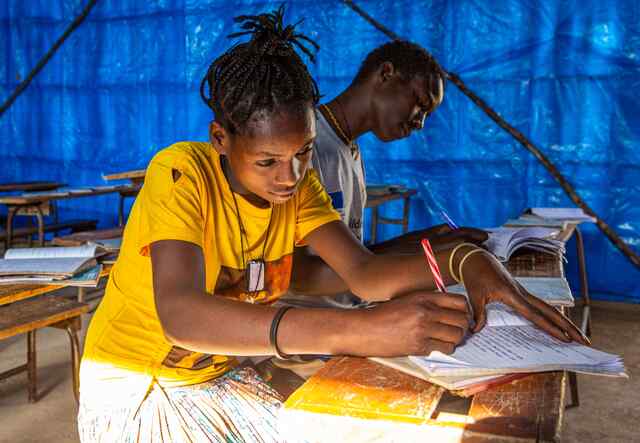
The IRC is a global leader in providing customized education services to assist communities affected by crises. The IRC aims to provide children with safe, quality education opportunities that equip them with essential skills to survive and flourish, no matter their location.
“We recognize both the incredible challenge and opportunity of meeting these populations where they're at,” says Banin. “We want to foster a world where children are given the opportunity to thrive because they can make our world a better place.”
With support from the MacArthur Foundation and LEGO Foundation, the IRC has partnered with Sesame Workshop to deliver Ahlan Simsim, the largest early childhood initiative intervention in the history of humanitarian response. Ahlan Simsim, which means “Welcome Sesame” in Arabic, combines Sesame Workshop’s engaging media content with the IRC’s expertise in delivering services in crisis-affected contexts. In partnership with over 60 local partners, including national ministries, Ahlan Simsim has reached more than 1.7 million children and caregivers across Iraq, Jordan, Lebanon and Syria with services for families. The program provides in-person programming and a locally produced Arabic-language version of the beloved “Sesame Street” show, which has reached over 25 million children across the region with critical lessons like identifying and managing emotions.
“We are changing the trajectory of children and caregivers living across the Middle East who have been suffering from the implications of the war in Syria,” explains Banin. “The results from this program are outstanding.”
With support from the LEGO Foundation, the IRC and partners are also delivering play-based learning opportunities to enhance children’s cognitive, social, emotional, physical, and creative skills as well as their wellbeing, through the PlayMatters program. This initiative will benefit 800,000 young refugees and host community children in Uganda, Ethiopia, and Tanzania.
“PlayMatters is particularly innovative,” says Banin “Play is a true tool for getting children to engage creatively with the literacy, numeracy, social and emotional skills that they need to retain foundational learning.”
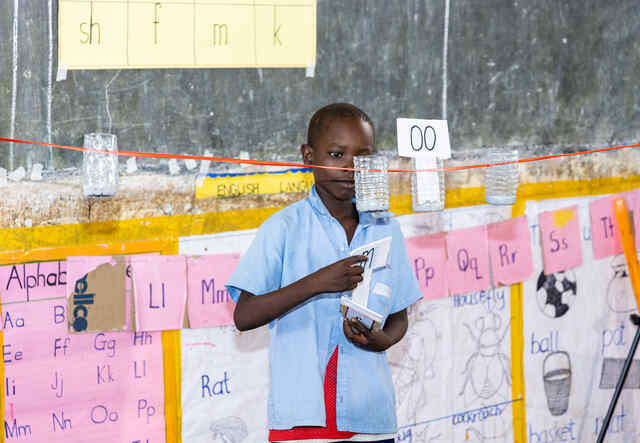
Since the inception of the IRC 90 years ago, we have created innovative solutions to tackle the world’s most urgent problems, such as providing education services to children in need. We have started leveraging the power of Artificial Intelligence (AI) in our programs aimed at reaching out to children in schools and remote learning environments.
Recent developments in our programming include supporting:
“We have designed a toolbox of interventions, which include a variety of responses that can be tailored to match the lived experiences of children and caregivers,” says Banin. “This approach allows the IRC to provide personalized and contextual support to children regardless of the crisis they are experiencing or their education level.”
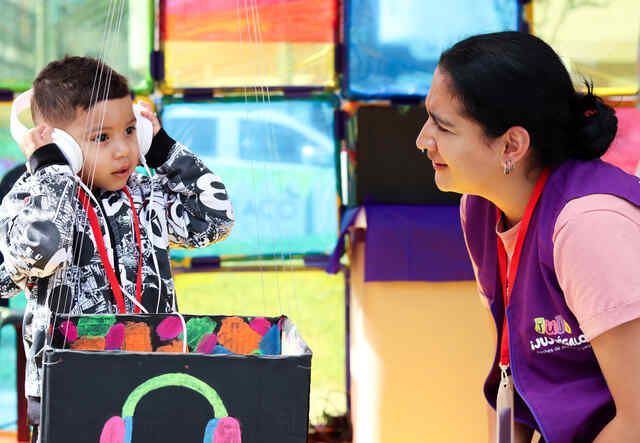
Learn more about the IRC’s education programming.
Since the escalation of the war in Ukraine in February 2022, nearly two-thirds of the country’s children have been forced to leave their homes. Four million children in the country remain in need of humanitarian assistance and more than 1,300 schools have been destroyed.
In Ukraine, the IRC is addressing the extensive psychosocial needs of children by supporting Safe Learning and Healing Spaces (SLHS) throughout the country, where children can foster social and emotional learning, critical to coping with trauma. We are also distributing early childhood development kits for internally displaced children which include books, activity guides and school equipment.
In Poland, we work with the Polish Migration Forum to support intercultural assistants who help Ukrainian children transition into schools and adapt to life in a new country. We also provide support for sports and educational activities for Ukrainian youth and offer intercultural training sessions for both students and teachers to make the integration process of young refugees easier.
Learn more about how the IRC is standing with Ukraine.
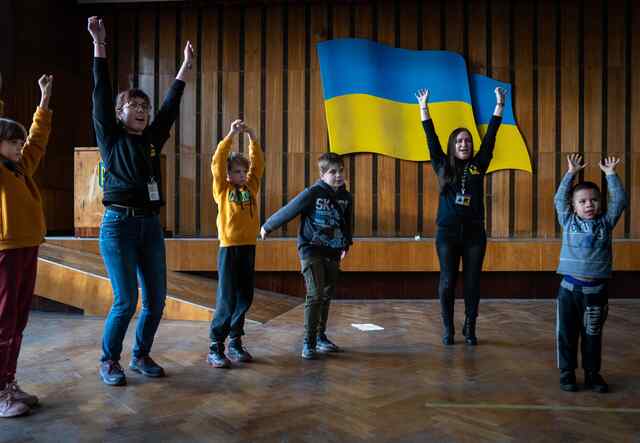
The IRC is active in more than 50 crisis-affected countries around the world, working to help people survive, recover and rebuild their lives. A cornerstone of our work is promoting educational outcomes in the communities that need it most.